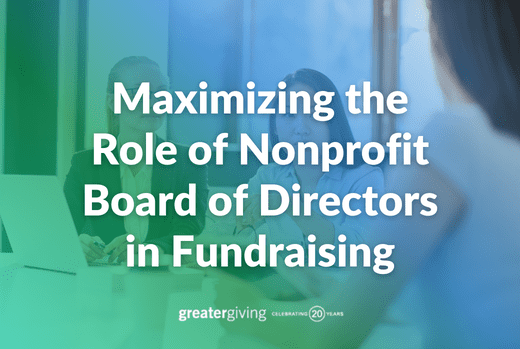
The board of directors plays a critical role in fundraising to support a nonprofit’s mission and operations
Many board members may feel uncertain about how they can effectively contribute to fundraising efforts. In this blog post, we will explore strategies and best practices for maximizing the role of nonprofit board of directors in fundraising.
Setting Fundraising Goals
One of the primary responsibilities of nonprofit boards is to set fundraising goals that align with the organization’s mission and strategic plan. These goals should be ambitious but realistic. They should reflect a thorough understanding of the organization’s financial needs and capacity. Board members should work closely with the executive director and fundraising staff to develop and monitor progress toward these goals.
Engaging in Donor Cultivation and Stewardship
Board members can play a key role in cultivating relationships with donors. They also play a key role in ensuring that donors feel valued and appreciated for their support. This can include personal outreach to donors, attending fundraising events, and participating in donor recognition activities. Board members can also help to steward major gifts. They do this by providing ongoing support and by ensuring that gifts are used in a way that aligns with philanthropic priorities.
Building a Strong Fundraising Team
The board of directors should work closely with fundraising staff to ensure that they have the resources and support they need to succeed. This can include providing guidance and mentorship to development staff. It’s also important to participate and promote fundraising training and professional development opportunities. Board members can help by leveraging their personal and professional networks to connect the organization with potential donors and supporters.
Developing a Culture of Philanthropy
Finally, nonprofit boards can play a critical role in developing a culture of philanthropy within the organization. This means fostering an environment in which all staff and volunteers understand the importance of fundraising and feel empowered to contribute. Board members can lead by example by making their own philanthropic commitments to the organization.
Nonprofit boards can play a critical role in maximizing fundraising efforts and supporting the success of their organizations.
By setting ambitious but realistic fundraising goals, engaging in donor cultivation and stewardship, building a strong fundraising team, and developing a culture of philanthropy, board members can help to ensure that their organizations have the resources they need to achieve their missions and make a positive impact in the world.
